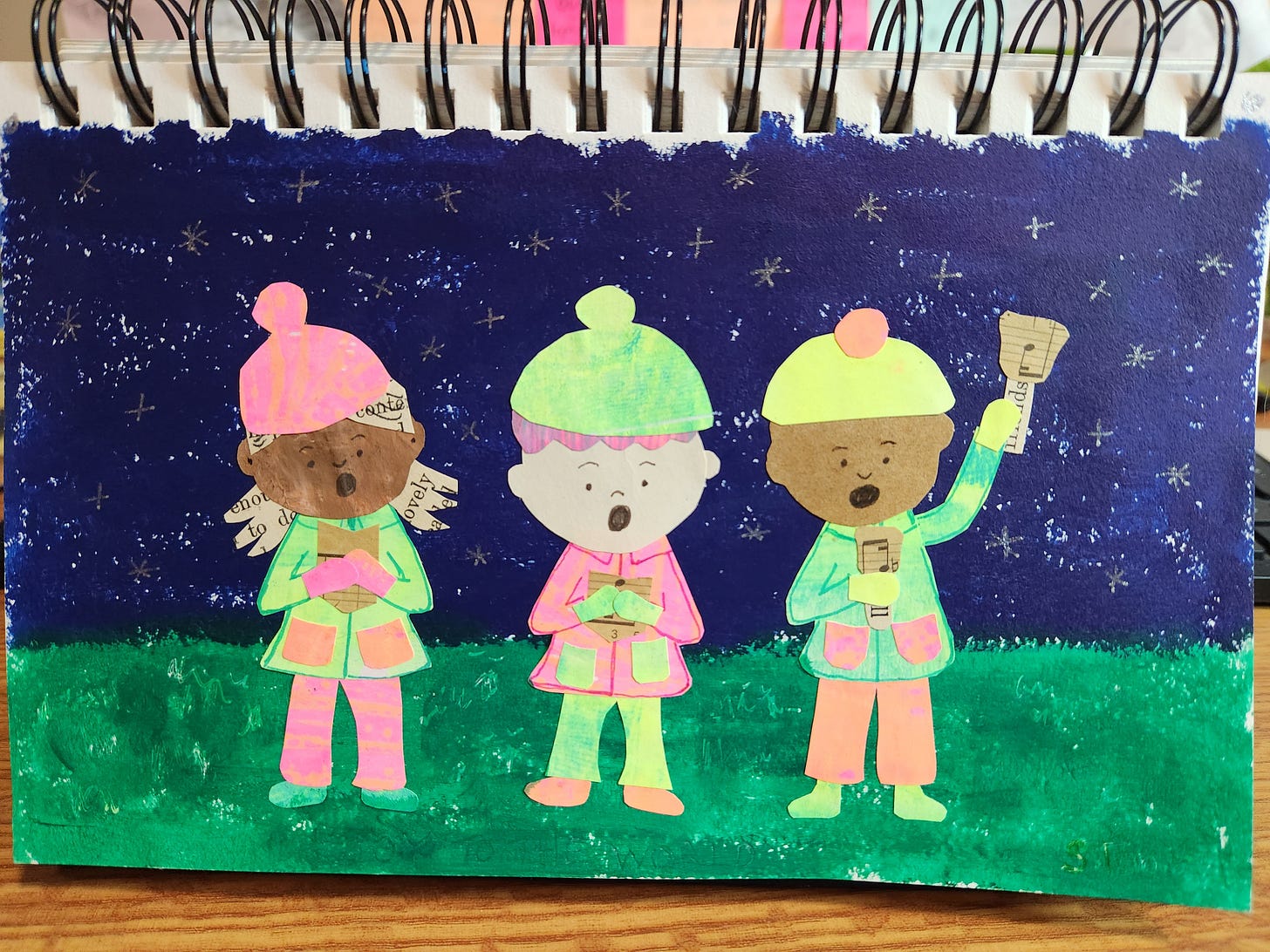I keep thinking about the definition of imagination and wonder if it needs a revision. Words are made up concepts that are given meaning by humans.
I want to argue that imagination is not about being able to create a mental image of something, but the ability to bring forth something from seemingly nothing. Whether it’s through mental imagery, through words, or though experimentation, through our senses.
In some ways, I think it takes far more courage and imagination to create from the blackness of the mind’s eye, than to see an image in your mind and strive to create that in some medium. And yet, I have heard many people say, they struggle to take the image that’s in their head and translate it into form.
I suspect that putting it out into the world has less to do with imagination than moving through fear of not getting the idea right. Allowing ourselves to be in flow, goof up, and learn rom our mistakes opens a gateway to imagination.
The idea that imagination is tied to mental images takes away from the writer who creates word images, from the scientist who hypothesizes, from the musician who feels the music of the universe and plays a tune.
I feel that I have a very good imagination that just happens to not come with images attached. I can "fancy" many things from what something might look like to writing stories that are based on nothing but some concepts pulled together.
One of the things that brought me to question the definition of imagination, was wondering how someone came up with the first drawing of a dragon or any other fantastical creature. If it never existed before, did the person who created it have an image of this non-existent thing in their head or did they let their mind wander through words or sketches mixing and matching a variety of things to create something new and different? I realize that's not a question that can be answered, really. I do know that when I write stories or create art, I'm allowing myself to flow and see what appears on the page. It comes usually from ideas merging and then being expressed through me into form. How is that not imagination?
The other day, I was allowing my mind to wander and contemplate what the images of a story I have written might look. I tend to think first about colors. I love bright bold colors. I was also walking the track and listening to music. The Ezra George song Green Green Grass1 played and I felt this flash of the yellow and green merge with the thoughts of my picture book illustrations. It was like thunder and lightning striking at the same moment. That flash was the image of what I see and feel beginning to take shape.
Before I teach a tai chi class, I spend time contemplating what I want to add to the practice for the week. Learning the form and having it stick can take many weeks. For some, the repetition feels boring, so how do we deepen our relationship to the practice to stay present and in the zone so we get the most benefits out of it even as we are learning the forms?
I happened upon a section in the Teaching Tai Chi Effectively book called Imagery Mechanics. Dr. Paul Lam writes:
“Imagery should not be confused with visualization. Imagery, in fact, does not require visualization at all to be effective. The object in using imagery to enhance tai chi play is not to see pretty pictures in your mind, but to pay attention, to be mindful, to train the body and the mind. Imagery can utilize any or all of the senses. It certainly can include visual imagery, but may also include images of sounds, kinesthetic sensations, and even smells. I remember attending workshops during which the presenter guided us through a visualization experience for relaxation. I always felt frustrated because I could not “see” anything with my eyes closed.”2
It was a wow moment for me on two levels. Yes, I thought, that’s how it works for me, and Holy Cow, Dr. Lam has the aphantasia trait too!
This has helped me a great deal. When visualization is tied inextricable with imagination, I felt like something was missing from my life. But, rethinking the definition in light of this aphantasia trait, has made me feel my creative imaginative power even more deeply.

Lam, Dr. Paul and Miller, Maureen, Teaching Tai Chi Effectively: Simple and proven methods to make tai chi accessible to everyone. Tai Chi Productions, Australia, 2006.





I whole heartedly agree with you about rewriting the definition of imagination. It's not surprising at all most of our definitions revolve around "mental-mind." Just as we've used Newtonian physics to define our world, we've used mind in an attempt to create certainty of thought. Certainty give us a false illusion of safety, if we are doing it Right vs Wrong Good vs Bad then we are okay. There's no creativity or imagination in that space though. We're moving into an era where old structures, processes, definitions, and restrictions are breaking down and being reformed in new ways. I think this "trait" you call aphantasia is your cosmic magic. To create from the darkness is to create from pure possibility. Once that becomes an image in the mind, we are bound by limitations to get that image onto the canvas and if it doesn't match we somehow feel we've failed. So I'm curious Sarah if you defined for you and only you, what is imagination to you? It feels like your description about how energy moves through you.